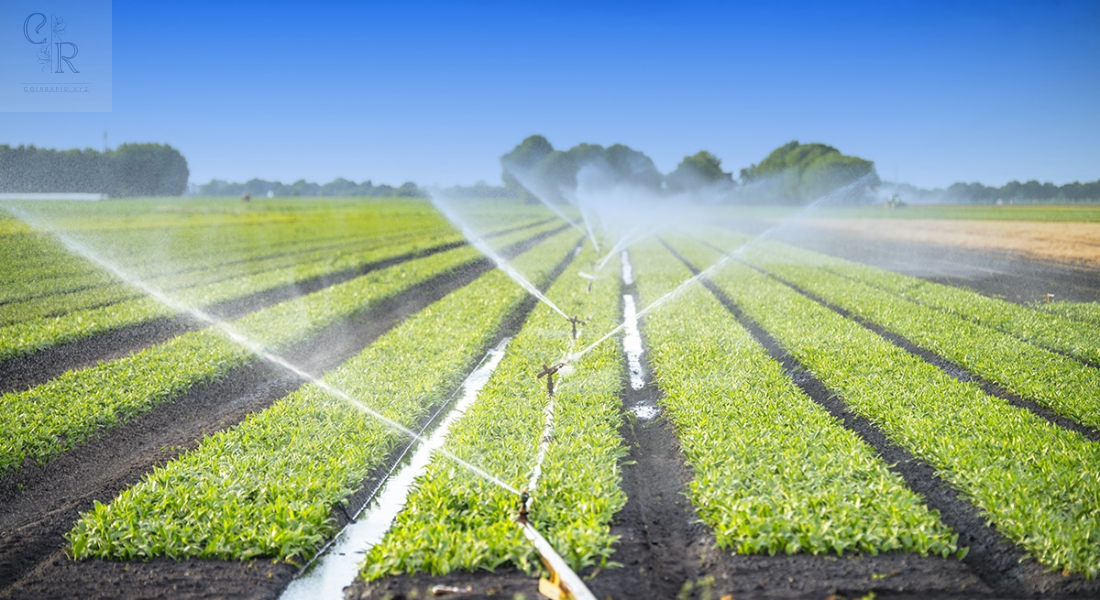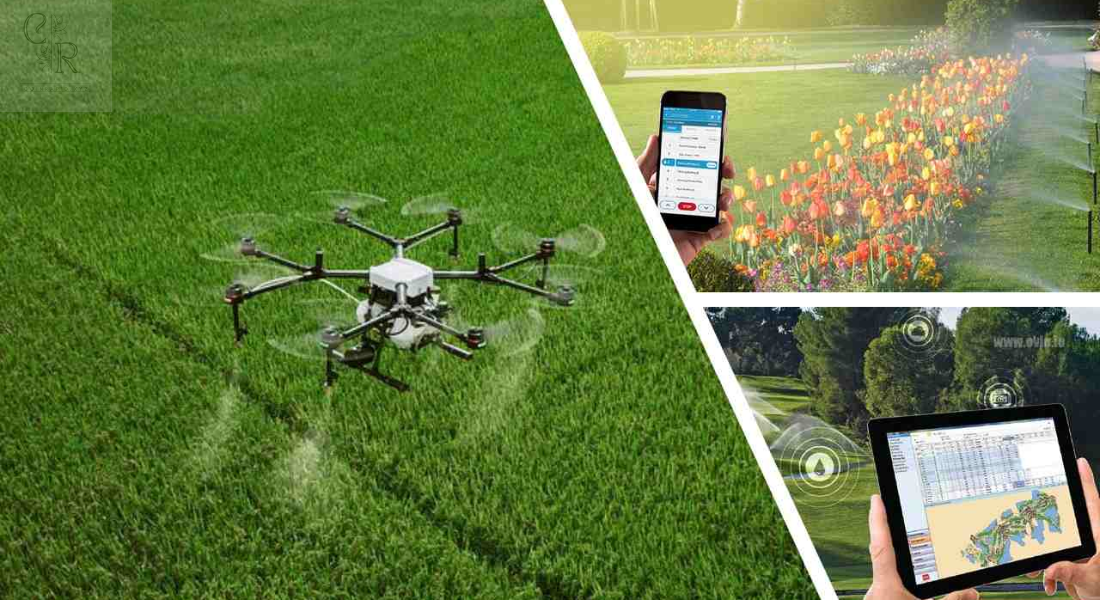Blog
Smart Irrigation for Farms Revolutionizing Agriculture Efficiency
The agriculture industry faces growing challenges, from water scarcity to climate unpredictability. Smart irrigation for farms emerges as a game-changing solution, helping farmers optimize water usage, increase yields, and reduce waste. By integrating advanced technology into irrigation systems, farms can achieve precise watering, ensuring every crop gets exactly what it needs.
Traditional irrigation methods often waste water and fail to adapt to changing conditions. In contrast, smart systems use sensors, weather data, and automation to deliver water efficiently, transforming how farms operate.
How Smart Irrigation Works for Farms
The Technology Behind Smart Irrigation
Smart irrigation for farms combines advanced technologies to improve water management. Key components include:
- Soil Moisture Sensors: Monitor real-time soil hydration levels, ensuring crops receive the right amount of water.
- Weather Forecast Integration: Adjust irrigation schedules based on upcoming weather conditions.
- Automated Valves: Control water flow to different zones of the farm, reducing human intervention.
- Data Analytics: Use historical and real-time data to refine irrigation strategies over time.
These components work together to create a highly efficient system that reduces waste and improves crop health.
Benefits of Precision Watering
Smart irrigation delivers water where and when it’s needed most. This precision reduces water waste, prevents overwatering, and ensures crops receive optimal hydration. Healthier crops mean higher yields and better quality produce.
Advantages of Smart Irrigation for Farms
Maximizing Water Efficiency
Water scarcity is a critical issue in modern agriculture. Smart irrigation systems use technology to minimize water usage without compromising crop health. By targeting specific zones and monitoring soil conditions, these systems eliminate unnecessary watering.
Increasing Crop Yields
When crops receive consistent and precise hydration, they grow healthier and more resilient. Smart irrigation for farms helps reduce stress on plants caused by over or under-watering, leading to higher yields and better profitability.
Saving Time and Labor
Automated systems reduce the need for manual labor, allowing farmers to focus on other important tasks. With remote monitoring and control, farm managers can adjust irrigation schedules from anywhere, saving both time and effort.
Reducing Environmental Impact
Smart irrigation systems help farmers minimize water runoff and energy usage. By reducing waste, farms contribute to sustainable agricultural practices, protecting valuable natural resources.

Essential Features of Smart Irrigation Systems
Sensors for Real-Time Monitoring
Smart irrigation for farms relies on sensors to provide real-time data. These sensors measure factors such as soil moisture, temperature, and humidity. This information allows the system to adapt irrigation schedules dynamically.
Zone Control for Efficiency
Farms often have diverse landscapes, with different crops requiring varying amounts of water. Smart irrigation systems enable zone-specific control, ensuring each area gets the appropriate amount of water.
Integration with Smart Technologies
Modern systems integrate with IoT devices, mobile apps, and cloud platforms. This connectivity allows farmers to monitor and manage irrigation remotely, making real-time adjustments as needed.
Scalability for All Farm Sizes
Smart irrigation systems are scalable, making them suitable for farms of all sizes. Whether managing a small organic farm or a large commercial operation, these systems can be customized to meet specific needs.
Implementing Smart Irrigation on Farms
Steps to Get Started
Adopting smart irrigation for farms may seem daunting, but the process is straightforward:
- Evaluate Farm Needs: Assess your farm’s water requirements, crop types, and existing irrigation setup.
- Choose the Right System: Select a system that aligns with your farm’s size, budget, and goals.
- Install Sensors and Controllers: Place sensors strategically across your farm to collect accurate data.
- Integrate Weather Data: Connect the system to a weather forecast service for better scheduling.
- Monitor and Adjust: Use analytics to refine your irrigation strategy over time.
Overcoming Initial Challenges
Farmers may face challenges such as upfront costs and a learning curve when implementing smart irrigation. However, the long-term savings and increased efficiency make it a worthwhile investment. Many governments and organizations also offer subsidies or financial support for sustainable farming practices.
Real-World Applications of Smart Irrigation for Farms
Case Studies in Success
Farmers worldwide are embracing smart irrigation and reaping the benefits. Here are some real-world examples:
- Drought-Prone Regions: In areas with limited water resources, smart irrigation systems have helped farmers maintain productivity by conserving water.
- Large-Scale Farms: Commercial farms have seen significant cost reductions by automating water distribution and monitoring.
- Specialized Crops: Vineyards and orchards use precision irrigation to improve fruit quality and increase yields.
Transforming Small Farms
Even small farms can benefit from smart irrigation. By focusing on specific zones and optimizing water usage, small-scale farmers can compete with larger operations while conserving resources.
Economic and Environmental Benefits
Boosting Farm Profitability
Smart irrigation for farms reduces water and energy costs, leading to significant savings over time. Healthier crops and higher yields translate into increased profitability. Additionally, automation frees up labor resources, reducing operational expenses.
Protecting Natural Resources
Efficient water use helps conserve this valuable resource for future generations. Smart irrigation systems also reduce the risk of soil erosion and nutrient runoff, protecting local ecosystems.
Smart Irrigation and Climate Change
Adapting to Unpredictable Weather
Climate change has made weather patterns increasingly unpredictable. Smart irrigation systems adapt to these changes by using real-time weather data. This adaptability helps farmers maintain productivity even in challenging conditions.
Reducing Agriculture’s Carbon Footprint
By minimizing water and energy usage, smart irrigation contributes to reducing agriculture’s overall carbon footprint. These systems align with global efforts to combat climate change through sustainable practices.
The Future of Smart Irrigation for Farms
Innovations on the Horizon
The future of smart irrigation for farms looks promising, with ongoing advancements in technology. Innovations such as AI-powered analytics, drone integration, and advanced soil mapping are set to make these systems even more efficient.
Expanding Accessibility
As technology becomes more affordable, smart irrigation will become accessible to more farmers. Increased adoption will lead to widespread benefits, from higher crop yields to better resource conservation.
Why Farmers Should Embrace Smart Irrigation
A Solution for Modern Agriculture
Smart irrigation for farms addresses the key challenges faced by today’s farmers. By improving efficiency, increasing yields, and promoting sustainability, it provides a comprehensive solution that benefits both farms and the environment.
Making the Transition
Adopting smart irrigation is an investment in the future. Farmers who embrace this technology gain a competitive edge, ensuring long-term success in an ever-changing industry.
Conclusion: The Smart Choice for Sustainable Farming
Smart irrigation for farms is more than a trend—it’s a necessity for the future of agriculture. By leveraging advanced technology, farmers can achieve greater efficiency, higher productivity, and reduced environmental impact. Whether managing a small farm or a vast commercial operation, smart irrigation systems offer a practical and sustainable solution to modern farming challenges. Make the shift today and reap the benefits of smarter, greener agriculture.

